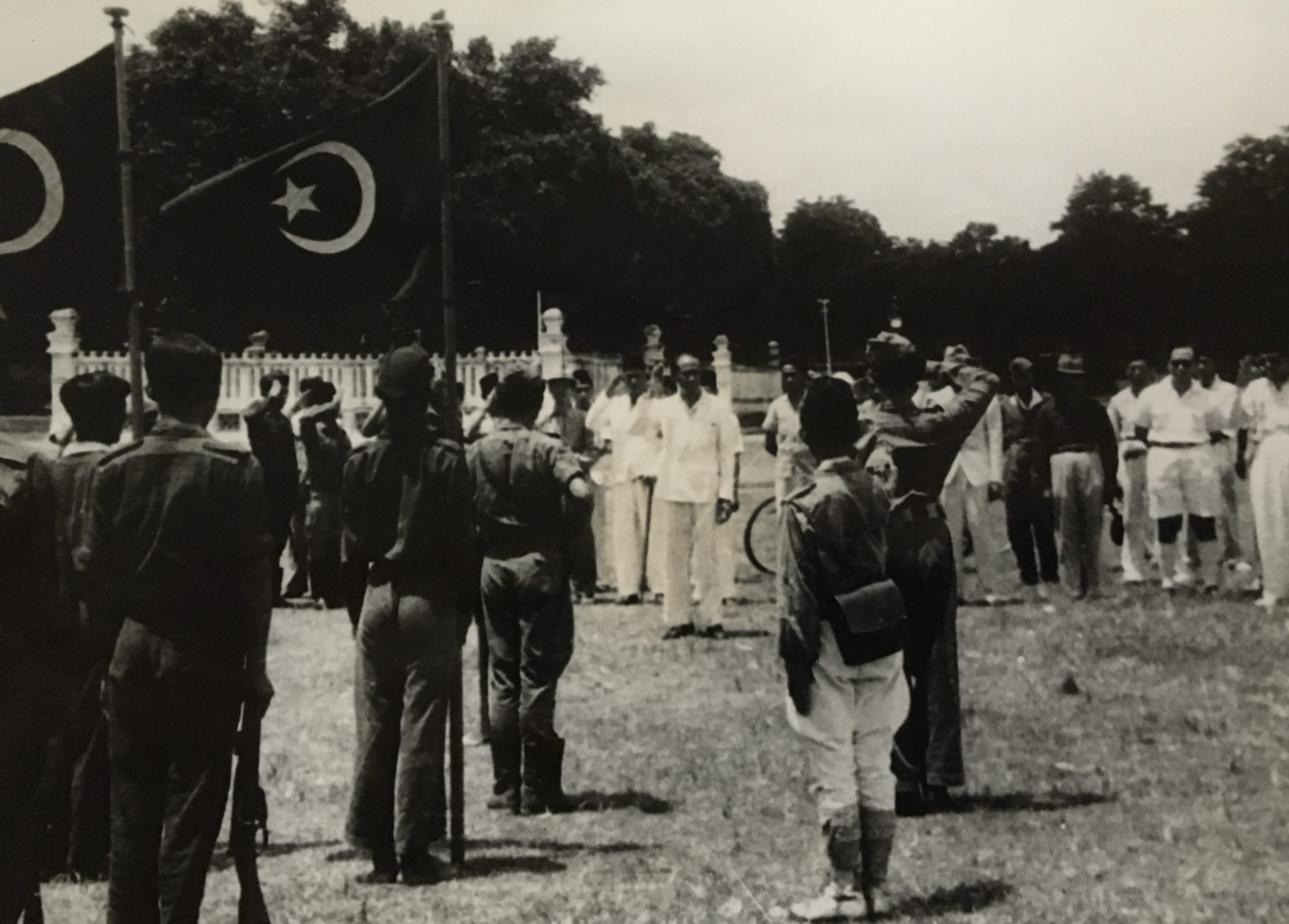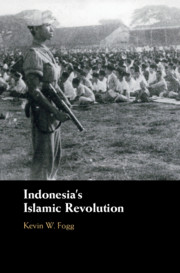
Dr. Fogg’s research focuses on the history of Muslims in Southeast Asia, especially Indonesia, during the twentieth century.
His first book, Indonesia’s Islamic Revolution, published by Cambridge University Press, studies Islamic understandings of and experiences in Indonesia’s Revolution (1945-1949). Trying to integrate both history from below and the critical evolutions of Islamic politics on a national level, the book pulls from archives and oral history interviews across Indonesia. The first part chronicles how grassroots Muslim participants believed that they were fighting to establish an Islamic state, incorporating Islamic militias, ulama leadership, amulets and spells, and social revolution in the struggle. The second part turns to high politics. Although the Islamic faction of the elite was not successful in making Indonesia an Islamic state, the revolution laid down important precedents that continue to impact Indonesian politics and the practice of Islam until today, such as laymen becoming Islamic politicians and the establishment of a Ministry of Religion. Beyond the case of Indonesia, the disconnect between the grassroots and the elite seen here speaks to the nature of Islam as an ideology of revolution: it functions very differently for different sectors of revolutionary society.
Dr. Fogg is currently working on his second monograph, focused on Indonesian mass Islamic organizations based outside Java. In 2019, this research and writing was supported by a generous grant from the Gerda Henkel Stiftung. The book chronicles the organizations’ historical evolution and their current status, working with local partners in Lombok, Central Sulawesi, and North Sumatra to study the Nahdlatul Wathan, Alkhairaat, and Jamiyatul Washliyah organizations, respectively. (Other regional traditionalist organizations, both historical and contemporary, that can be considered in this category include the Musjawaratutthalibin in South Kalimantan, Perti in West Sumatra, and Darul Dakwah wal Irsyad in South Sulawesi.) For some of these organizations, this project is the first time they are documented in English. That does not mean these groups are small, though. Nahdlatul Wathan, for example, has dominated politics in West Nusa Tenggara province for decades, and the former governor won his position in part because his grandfather had founded the group. In the North Sumatran provincial parliament, the “Washliyah” inter-party caucus based on the mass organization was the largest caucus in the legislative body for the first decade of the twenty-first century, spanning all parties except the Christian one. Alkhairaat runs the largest network of schools in Eastern Indonesia, with thousands of local branches and millions of graduates. Collaborative work between Dr. Fogg and Indonesian partner institutions will help not only to shine light on these organizations, but it will also compare across organizations and regions in useful ways and question the broader role of religious civil society organizations in Indonesia. The monograph is tentatively titled Mainline Islam: Islamic Associational Life in Indonesia.
Dr. Fogg is also active writing for journals. He has published a contextual biography of K.H. Ahmad Azhary, appointed to be Indonesia’s third Minister of Religion but never able to take up the post. His analysis of Arab normativity in the writings of the most famous colonial scholar of Indonesia Islam, Snouck Hurgronje, was published as a journal article in 2014 and republished in Indonesian translation in 2017. In February 2015, the Journal of Southeast Asian Studies carried one of his articles on the impact of language change on Muslim communities in Indonesia. Another article in 2015 looked at the diplomatic history of Indonesia and the Arab world in the 1940s, examining the role of Islam in the relationship as it shifted from societal connections to formal state recognition. In connection with the project on Islamic organizations, he has written on the question of charisma in a modern saint in Central Sulawesi and the process of canonizing new national heroes in Indonesia. Dr. Fogg has also written a history of the idea of Islamic Socialism in Indonesia, looking at the influences from an Indian Muslim thinker that led to the rise of this ideology, the particular method of transmission that took Islamic socialist thought from the South Asian diaspora in London to Indonesia, and the legacies of Islamic socialism in Indonesian politics. Recently he probed socialism in Indonesia more broadly, specifically how it went so quickly from its heyday in the 1950s with a wide range of meanings to its near disappearance from the mid-1960s. With Dr. Saipul Hamdi of Universitas Mataram, he has a piece on the attempted reconciliation of the Nahdlatul Wathan organization in 2021.
Other pieces appear in edited volumes. On the seventieth anniversary of the end of the Second World War in Asia, Dr. Fogg was one of the contributors to an edited volume commemorating events of the first 100 days after Japan’s surrender. In Southeast Asian Schools in Modern History: Education, Manipulation and Contest, he wrote about the increasing interdigitation of the state and Islamic educational systems in Indonesia. He has written on the shifting definitions of religion in the early Indonesian Republic by looking at how this category was regulated by the state; this was published in Regulating Religion in Asia: Norms, Modes, and Challenges.
Dr. Fogg received a grant from the British Academy to work in collaboration with Dr. Syahrul Hidayat of the University of Exeter and University of Indonesia in a project that documented the members of Indonesia’s constitutional assembly (the Konstituante), the largest elected legislative body after independence. That data is now available in an online research database: www.konstituante.net .